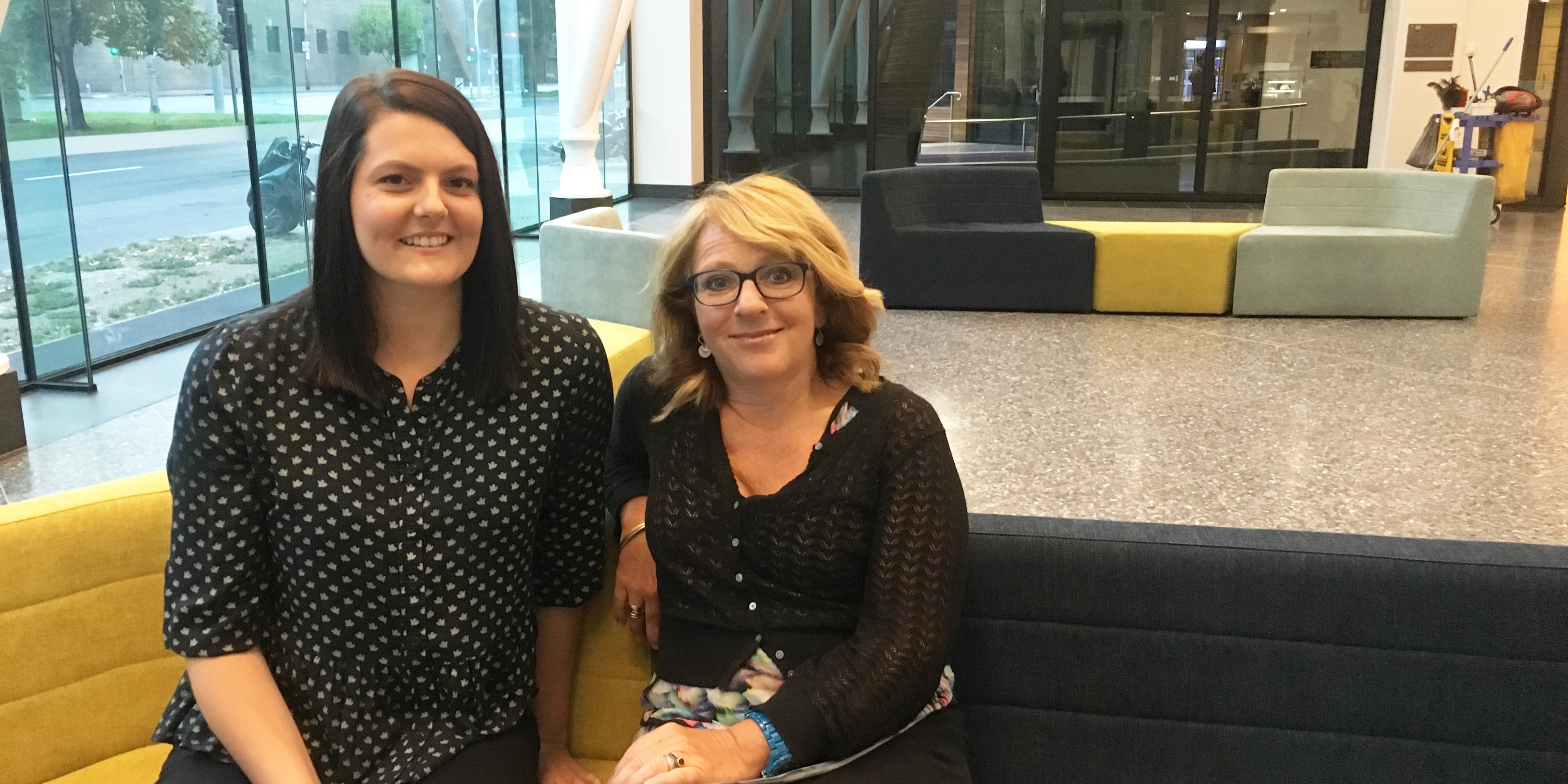
The Women’s has experienced more than a five-fold increase in the numbers of healthy women with a family link to cancer, choosing surgery to remove their reproductive organs in order to prevent ovarian cancer.
Greater awareness of the genetic mutations linked to breast and ovarian cancer has resulted in more families identifying their genetic risk and subsequently choosing surgery to reduce their cancer risk.
Eloise Babos, 28, a Pink Hope Outreach Ambassador, is one of them and is seeking to raise further awareness during Ovarian Cancer Awareness Month. She carries the BRCA 1 genetic mutation.
She is currently going through IVF with specialist testing to select an embryo without her genetic mutation to ensure her child will not inherit the high-risk cancer genetic mutation.
See Eloise's interview on ABC TV Breakfast
It was upon her mother’s third diagnosis with breast cancer in 2013 that the whole family underwent genetic testing – her mother, herself and one of her sisters tested positive for the BRCA1 gene mutation.
“When I was officially told, it was a shock, but I felt really grateful for the forewarning,” Eloise said.
In 2014, she had a double mastectomy to reduce her risk of breast cancer. Her mother passed away from the disease in 2015.
Eloise said she hopes to have two children close together so she can have her ovaries and fallopian tubes out in her early 30s.
Associate Professor Kate Stern, head of the Women’s and Melbourne IVF Fertility Preservation Service, said the high risk that BRCA1 and 2 gene mutation carriers face for developing ovarian cancer, resulted in many thinking about their fertility at a much younger age.
“It impacts many young women at a time when they might be wanting to have a family, and that brings with it a range of stressors,” Assoc. Prof Stern said.
“These women have a one in two chance of passing on their genetic mutation to each of their children,” she said.
“Women have an option of going through IVF and using preimplantation genetic diagnosis (PGD) testing, which allows us to take a cell from a five-day-old embryo and test it for genetic variations before transfer to the woman. Not all embryos will carry the faulty gene, so by conducting this test we can identify those without the mutation and offer some comfort to parents that they won’t be passing the gene on to the next generation.
“Of course, this comes at a cost, which for some may be too expensive to be viable. This is why we are calling for PGD to be funded on the Medicare Benefits Schedule (MBS), similar to how it is funded for patients in the United Kingdom.
“Reducing transmission to children and helping women conceive before they have to have their ovaries removed is obviously going to be good for the health bottom line.”
Associate Professor Orla McNally, Director of the Women’s Gynaecology Oncology service and the Gynaecology Tumour Stream of the Victorian Comprehensive Cancer Centre (VCCC) said risk reduction surgery at the Women’s was growing in demand.
“In the last two financial years we have had just over 200 women referred for consideration of risk reduction surgery. This is double the number in previous years,” Assoc. Prof McNally said.
“Because of this demand, the multi-disciplinary approach we use to manage these women has had to evolve. We work very closely with the Familial Cancer Clinics in the first instance so we have accurate information from genetic doctors and counsellors prior to planning surgery.
“There is a small chance that cancer will be found at the time of surgery and so it is important that this surgery is performed by specialists experienced in caring for women in this situation. Expert pathologists are also important. Many women will enter the menopause much sooner than might happen naturally and women can be counselled in the specialist menopause clinic at the Women’s before and after surgery.
Unlike many other cancers, ovarian cancer has had little improvement in survival rates as there is no proven early diagnostic screening test available, resulting in women usually being diagnosed once the disease is in the late stages.
Assoc. Prof McNally said Ovarian Cancer Awareness Month was an opportunity to remind women of the importance of seeing a specialist gynaecological oncologist if they are suspected to have ovarian cancer.
“We know that women’s outcomes are better when they are managed by gynae-oncology teams in specialist centres in Australia such as the one at the Women’s as they also have enhanced access to clinical trials, which we know is very important in terms of cancer treatment and survival.”
Pink Hope, a support organisation for women at risk of breast and ovarian cancer, has a Know Your Risk tool – a simple online questionnaire to help women assess their personal risk of developing breast or ovarian cancer. View the questionnaire and further information about Pink Hope at their website: www.pinkhope.org.au